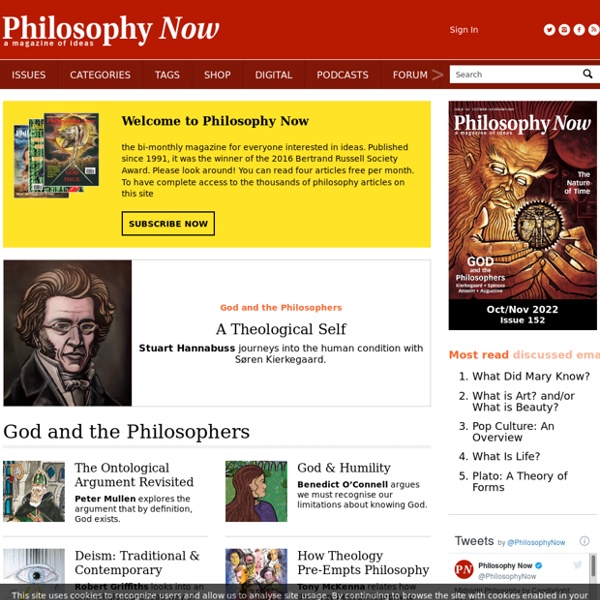



Symbolic Logic Symbolic logic is the method of representing logical expressions through the use of symbols and variables, rather than in ordinary language. This has the benefit of removing the ambiguity that normally accompanies ordinary languages, such as English, and allows easier operation. There are many systems of symbolic logic, such as classical propositional logic, first-order logic and modal logic. Why do we believe in electrons, but not in fairies? by Benjamin Kuipers No one has directly observed either electrons or fairies. Both of them are theoretical constructs, useful to explain observations that might be difficult to explain otherwise. The "theory of fairies" can actually explain more things than the "theory of electrons". So why do we believe in electrons, but not in fairies?
The eight stages of human life - Philadelphia Mental Health "Children love and want to be loved and they very much prefer the joy of accomplishment to the triumph of hateful failure. Do not mistake a child for his symptom. " Erik Erickson 20th century German psychologist Erik Erickson proposed that there are eight stages of development that all humans go through. He parted company with his predecessor Sigmund Freud who believed that there were only five stages beginning at birth and ending at adolescence.
A List Of Fallacious Arguments attacking the person instead of attacking his argument. For example, "Von Daniken's books about ancient astronauts are worthless because he is a convicted forger and embezzler." (Which is true, but that's not why they're worthless.) Another example is this syllogism, which alludes to Alan Turing's homosexuality: Turing thinks machines think. Turing lies with men.
Existence (Stanford Encyclopedia of Philosophy) - StumbleUpon First published Wed Oct 10, 2012 Existence raises deep and important problems in metaphysics, philosophy of language, and philosophical logic. Many of the issues can be organized around the following two questions: Is existence a property of individuals? and Assuming that existence is a property of individuals, are there individuals that lack it?
Existentialism, Sartre’s The philosophical career of Jean Paul Sartre (1905-1980) focuses, in its first phase, upon the construction of a philosophy of existence known as existentialism. Sartre's early works are characterized by a development of classic phenomenology, but his reflection diverges from Husserl’s on methodology, the conception of the self, and an interest in ethics. These points of divergence are the cornerstones of Sartre’s existential phenomenology, whose purpose is to understand human existence rather than the world as such. To sleep less and dream more If for a moment God were to forget that I am a rag doll and granted me a piece of life, I probably wouldn't say everything that I think; rather, I would think about everything that I say. I would value things, not for their worth but for what they mean. I would sleep less, dream more, understanding that for each minute we close our eyes, we lose sixty seconds of light. I would walk when others hold back, I would wake when others sleep, I would listen when others talk. And how I would enjoy a good chocolate ice cream!
List of fallacies A fallacy is incorrect argument in logic and rhetoric resulting in a lack of validity, or more generally, a lack of soundness. Fallacies are either formal fallacies or informal fallacies. Formal fallacies[edit] Main article: Formal fallacy Appeal to probability – is a statement that takes something for granted because it would probably be the case (or might be the case).[2][3]Argument from fallacy – assumes that if an argument for some conclusion is fallacious, then the conclusion is false.Base rate fallacy – making a probability judgment based on conditional probabilities, without taking into account the effect of prior probabilities.[5]Conjunction fallacy – assumption that an outcome simultaneously satisfying multiple conditions is more probable than an outcome satisfying a single one of them.[6]Masked man fallacy (illicit substitution of identicals) – the substitution of identical designators in a true statement can lead to a false one.
The Dalai Lama’s 18 Rules For Living May 6, 2011 | 42 Comments » | Topics: Life, List At the start of the new millennium the Dalai Lama apparently issued eighteen rules for living. Since word travels slowly in the digital age these have only just reached me. The Philosophy of Food Project Introduction to the Philosophy of Food What is philosophy of food? What is food? (Food metaphysics) How do we know it is food? (Food epistemology)
The L-Space Web: Death and What Comes Next - StumbleUpon The L-Space Web Copyright © Terry Pratchett 2002 When Death met the philosopher, the philosopher said, rather excitedly: "At this point, you realise, I'm both dead and not dead." There was a sigh from Death. Oh dear, one of those, he thought. How to Make Our Ideas Clear How to Make Our Ideas Clear Charles S. Peirce Popular Science Monthly 12 (January 1878), 286-302. 111 Lessons Life Taught Us Sometimes thinking about your life and sorting out what you have learned is just as important as tackling a new venture. That’s what our new sister site, Everyday Life Lessons, is all about. It’s an online community where people share, rank and discuss life’s greatest lessons. The site challenges you to reflect on your past, dig deep within yourself and answer one simple question: